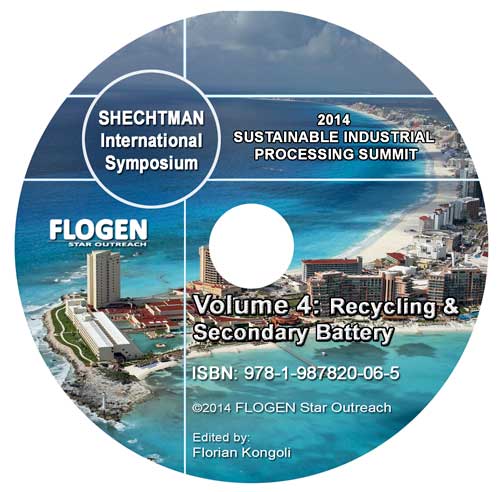2014-Sustainable Industrial Processing Summit
SIPS 2014 Volume 5: Composite, Ceramic, Quasi-crystals, Nanomaterials & Coatings
| Editors: | Kongoli F |
| Publisher: | Flogen Star OUTREACH |
| Publication date: | 20 December 2014 |
| Pages: | 578 pages |
| ISBN: | 978-1-987820-07-2 |
| ISSN: | 2291-1227 (Metals and Materials Processing in a Clean Environment Series) |

CD shopping page
Novel Nanotubular Surfaces for Biomechanics Applications
Tolou Shokuhfar1;1MICHIGAN TECHNOLOGICAL UNIVERSITY, Houghton, United States;
Type of Paper: Regular
Id Paper: 210
Topic: 16
Abstract:
Engineered-nanotubular structures offer exciting progress toward the design of multifunctional medical implants. To bring this to reality, one should know the mechanical, electrical, surface, and biocompatibility properties of such structures. The mechanic of nanotubes is important from mechanotransduction points of view. It was observed that the fabrication of TiO2 nanotubes with elastic modulus close to actual bone promotes osteoblast growth. In order to investigate this effect, series of novel experiments on measuring the mechanical properties of individual TiO2 nanotubes followed by in-vitro cell culture test were conducted. The nanotubes were tested in the chamber of transmission electron microscope using an in-situ atomic force microscopy stage with force resolutions better than 1 nN. Thin and thick nanotubes were tested to check if there were variations of mechanical properties as a function of size. It was shown that the nanotubular characteristics of the surface improve cell proliferation, attachment and spreading of osteoblast cells. Finally, it was observed that as the nanotubes become stiffer, the density of cells increases. Based on these findings, we speculate that surface modification of Ti implants by TiO2 nanotubes with elastic behavior close to the actual bone can be promising to overcome stress-shielding, a common reason for implant failures.